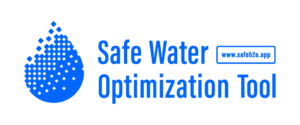
Humanitarian operations have little in place to ensure that water quality complies with safety guidelines at the point of consumption, a significant oversight in response efforts.
Chlorination is the most widely practised water treatment technique used to supply safe water to refugees and internally displaced persons. If well managed, it can ensure residual contamination protection from the point of water dispensation to the point of water consumption in the household.
Humanitarian agencies prioritize water safety and routinely collect, monitor and report residual chlorination data. Little is done, however, to leverage this information to ensure that water quality complies with safety guidelines at the point of consumption, a significant oversight in response efforts.
The proper management and analysis of routinely collected residual chlorine data, using appropriate statistical techniques, will provide humanitarian field workers with high-quality, site-specific, and evidence-based operational guidance. The Safe Water Optimisation Tool (SWOT) is being developed with this primary objective. It aims to:
- Improve public health by reducing the incidence of water borne disease
- Establish site-specific guidance to ensure stricter compliance with chlorination standards at the household level
- Improve accountability to populations and donors
- Highlight problematic areas or practices towards which resources can be focused during water supply interventions or outbreak control
With Médecins Sans Frontières / Doctors Without Borders
You may also be interested in…
Recap — Living in a Global Hinge Moment: Thinking Critically About Global Crises, with Saptarishi Bandopadhyay
On September 18, 2024, Dahdaleh faculty fellow and Associate Professor at York University Saptarishi Bandopadhyay explored whether current global crises represent a pivotal moment in history. Professor Bandopadhyay was hesitant to answer definitively due to …Read more about this Post
Check out the SWOT at the UNC Water and Health Conference
The Safe Water Optimization Tool (SWOT) team will be at the upcoming UNC Chapel Hill Water and Health Conference, October 24 to 28, at the University of North Carolina Chapel Hill. James Brown, our field technical …Read more about this Post
Global Strategy Lab awarded $8.7M to create AMR Policy Accelerator
Antimicrobial resistance (AMR) is one of the greatest threats humanity faces today. Decades of use, overuse and misuse of antimicrobials in animals and humans has led to the development of bacteria, viruses, fungi and parasites …Read more about this Post
